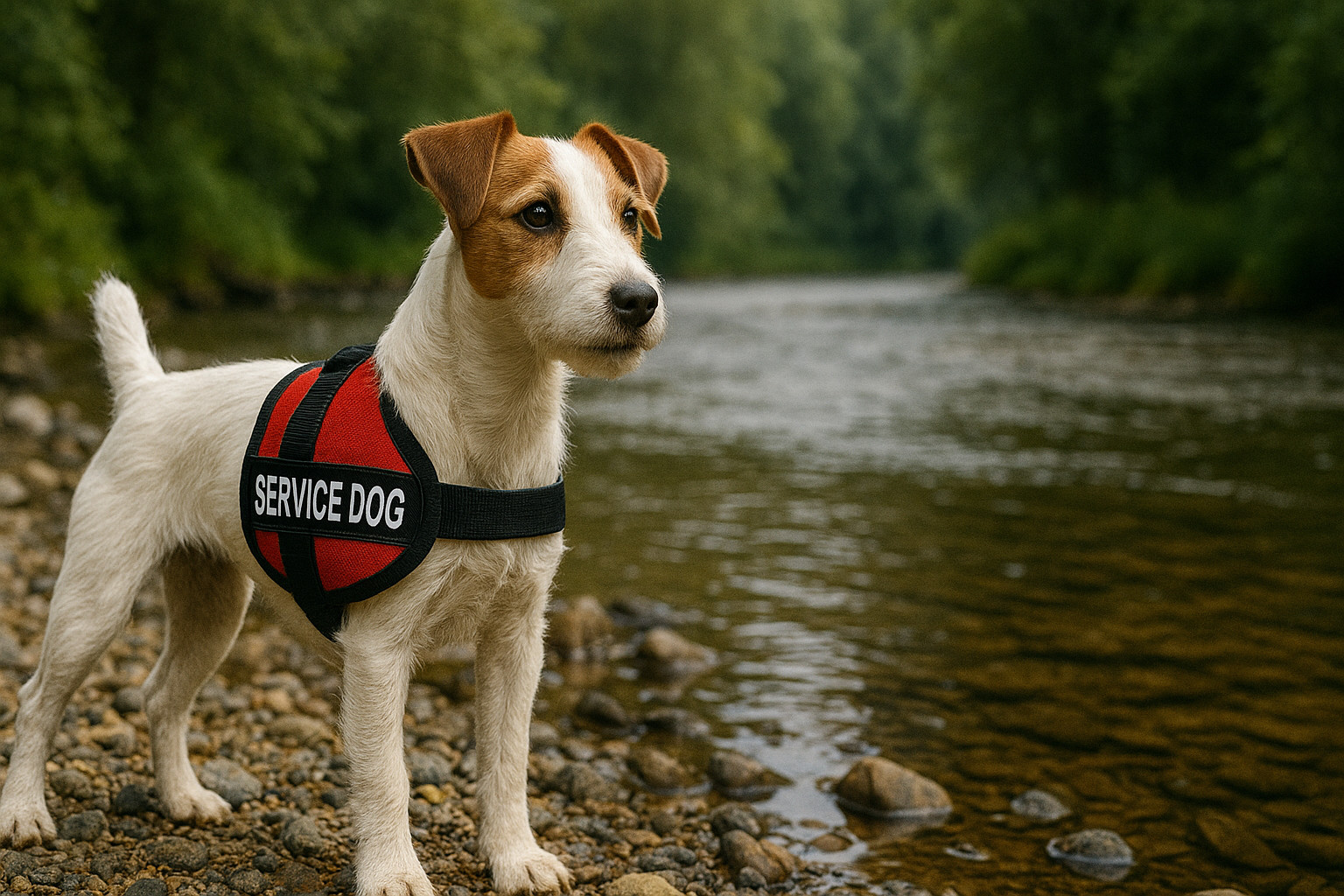Parson Russell Terrier as a Service Dog
Get Your Documents

The selection of an appropriate service dog breed is crucial, as certain characteristics directly influence a dog’s ability to assist individuals with disabilities. The Parson Russell Terrier, with its distinctive traits, can be evaluated for its suitability as a service dog. This article delves into the various facets of the Parson Russell Terrier to assess its potential and limitations in the service dog realm.
Parson Russell Terrier Overview
The Parson Russell Terrier is a lively and spirited breed known for its intelligence and tenacity. Originating from England and initially bred for hunting, Parsons are alert, athletic, and entertaining dogs that thrive on companionship and mental stimulation. This section evaluates the breed’s physical characteristics, temperament, types of service work they are suited for, health considerations, training suitability, and overall potential as service dogs.
Physical Characteristics
Parson Russell Terriers are small to medium-sized dogs, characterized by their robust and well-balanced bodies. These dogs typically stand between 13 to 14 inches tall at the shoulders and weigh between 13 to 17 pounds. They have a dense and weatherproof double coat, with varieties either being smooth or broken (slightly longer with a hint of roughness).
The physical attributes of the Parson Russell Terrier suggest:
- Strength and Agility: Despite their small stature, these dogs are extremely agile and possess a surprising amount of strength, which stems from their history as working terriers. Their nimbleness makes them adept at various physical tasks.
- Size Limitations: Their compact size, however, may not suit all service dog tasks. For instance, they are not ideal for physical support or weight-bearing roles such as balance assistance.
- Energy Level: Parsons have high energy levels requiring regular exercise. This characteristic can be advantageous in service roles that demand alertness and active presence.
Temperament and Attitude
The personality of the Parson Russell Terrier is marked by vivacity, intelligence, and confidence. Known for their keen sense of adventure and spirited disposition, these terriers naturally exude enthusiasm in most situations.
Behavioral insights include:
- Adaptable and Sociable: These dogs are generally friendly and capable of adapting to various environments, which is vital for public access situations where service dogs might be required to accompany their handlers.
- Independent Thinkers: While their independence can sometimes be mistaken for stubbornness, it signifies a terrier’s natural drive to reason and solve problems, an asset in certain types of service tasks.
- Alert and Protective: Parsons are innately vigilant and exhibit a protective demeanor. They can be trained to notice subtle changes in the environment or in their handler’s behavior, useful for tasks requiring acute observation.
Types of Service Work
While the Parson Russell Terrier may not fit the conventional image of larger service dogs, their unique traits make them suitable for specialized roles. Possible service work includes:
- Medical Alert Dog: Their keen sense of smell and attentiveness can be harnessed for medical alert tasks such as detecting low blood sugar levels in diabetic individuals or sensing the onset of seizures.
- Psychiatric Service Dogs: With proper training, Parsons can help individuals with psychiatric disabilities by performing tasks such as interrupting anxiety episodes or providing tactile stimulation during stress.
- Emotional Support Animals: Their sociable and affectionate nature aligns well with emotional support roles, providing companionship and reducing anxiety for those experiencing emotional or psychological distress.
Health Considerations
Health is an essential consideration in determining the suitability of any breed for service work, and the Parson Russell Terrier is generally a healthy breed with a decent lifespan of 13 to 15 years. Nevertheless, potential health issues include:
- Patellar Luxation: The breed can be predisposed to knee cap dislocation, which might affect its ability to perform physically demanding tasks over time.
- Lens Luxation and Cataracts: Vision problems can also arise as Parsons age, impacting their overall utility as service dogs.
- Hearing Deficiency: Some individuals may have congenital deafness, crucial to identify early when considering their role in alert-based service tasks.
Regular veterinary check-ups and genetic testing are recommended to mitigate these risks and ensure the service capability of individual dogs.
Training and Suitability
Training is a vital aspect of transforming a Parson Russell Terrier from a lively pet to an effective service dog. This breed is known for its intelligence and eagerness to learn, yet its independent nature requires a distinct approach in training.
- High Trainability with Consistent Methods: Parson Russell Terriers respond well to positive reinforcement techniques but require consistent, firm, yet gentle guidance to channel their intelligence and energy productively.
- Engagement and Mental Stimulation: Regular mental challenges and active engagement are crucial. Training sessions should incorporate problem-solving exercises to tap into the terrier’s natural curiosity.
- Focus in Diverse Environments: The terrier’s lively nature may lead to distractions; overcoming this requires gradual exposure to public settings to improve focus in varied environments.
Summary of Parson Russell Terrier
In conclusion, while the Parson Russell Terrier is not widely viewed as a conventional service dog candidate, its distinct characteristics suggest certain suitability under specific conditions and roles. To summarize the breed’s potential in service work:
- Strengths:
- High energy levels conducive to active tasks
- Keen sense of smell for medical alert roles
- Intelligence and adaptability in diverse settings
- Weaknesses:
- Small size limits physical support capabilities
- Independent nature requires specialized training approaches
- Ideal Service Roles:
- Medical Alert Dog
- Psychiatric Service Dog
- Emotional Support Animal
Ultimately, the Parson Russell Terrier’s suitability as a service dog depends significantly on individual temperament and the specific needs of the person requiring assistance. With focused training and clear roles, these terriers can be valuable companions in the right contexts.
Get Your Documents
Example State Cards













